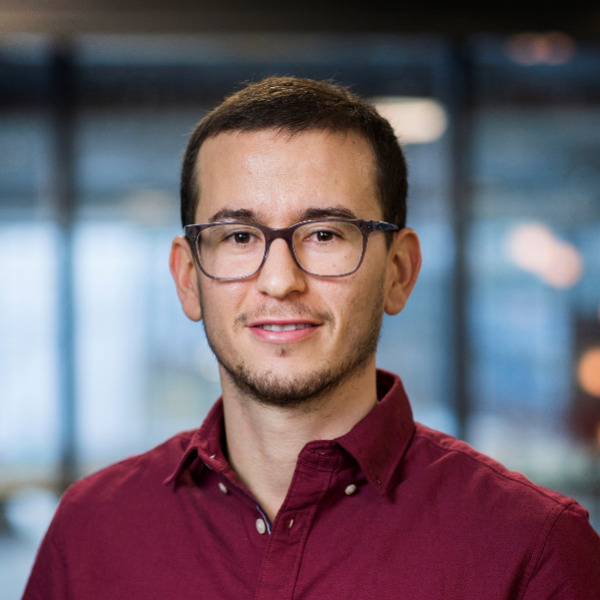| University | Eindhoven University of Technology (TU/e) |
| Institute and/or group | Institute for Complex Molecular Systems |
| Advisors | Prof. dr. Jan van Hest (TU/e), Prof. dr. Alexander Kros (LU) |
| oLife Research Areas | II. Defining properties and synthesis of Life, from the molecular to the biosphere level III. Modelling, predicting and steering of Life |
| Start date
End date Next career step |
December 25, 2019
December 14, 2021 University of Valencia, Spain |
Profile of the fellow
Antoni Llopis Lorente obtained his five-year degree in Chemistry (cum laude, 2013) from University of Valencia (Spain), after completing a 9-month research internship at Imperial College London (UK, 2013) focused on the study of gold nanoparticles. Later, he did a master’s in Sensors for Molecular Recognition at Polytechnic University of Valencia. In 2014, he was awarded a PhD fellowship from “La Caixa” Foundation for pursuing a PhD in Chemistry and Nanotechnology. He defended his PhD thesis (cum laude) entitled “Enzyme-functionalized hybrid mesoporous nanodevices for sensing, controlled release and molecular communication” on February 1st, 2019. During his PhD, he conducted research stays in different institutions: Complutense University of Madrid (1 month, 2015), Institute of Bioengineering of Catalonia (1 month, 2017), and Radboud University (6 months, 2017). Some of his most notable research contributions embrace the design of nanodevices for sensing (Chem. Eur. J., 2019, 25, 3575), drug delivery (ACS Nano 2019, 13, 12171; ACS Appl. Mat. Interfaces, 2018, 10, 26494) and chemical communication at the mesoscale (Nat. Commun., 2017, 8, 15511).
Dynamic Life-Like Systems Based on Enzyme-Regulated Synthetic Compartments
Understanding how different building blocks can be self-assembled into cell-like functional compartments is an exciting scientific challenge. In fact, compartmentalization of chemicals separated from the external environment by a physical boundary (membrane) is a key hallmark for the origin of life. Lipid cellular membranes are essential for hosting vital processes and maintaining the integrity of living cells. At the same time, life is dynamic and requires cellular interaction with the environment and with other cells. During the origin of life, dynamic assembly of biological supramolecular structures and interactions between different protocells must have played a crucial role, for instance, in determining cellular species survival or in the evolution from unicellular to multicellular forms of life.
This research project is focused on the construction and study of synthetic compartments that integrate both life-like structural features and functions. Following a bottom-up approach, synthetic compartments are fabricated at different length scales, ranging from the nano- to the microscale, using organic building blocks such as lipids and block copolymers. As in living systems, dynamic processes and functions in these synthetic vesicles can be regulated by enzymatic effectors giving rise to life-like behaviors. The engineering of these cell-mimicking compartments, capable of displaying stimuli-responsive interactions that result in the reversible modulation of physicochemical properties, holds interest in different areas reaching from the understanding of the origin of life to applications in biomedicine and materials chemistry.

Dr. Antoni Llopis Lorente
